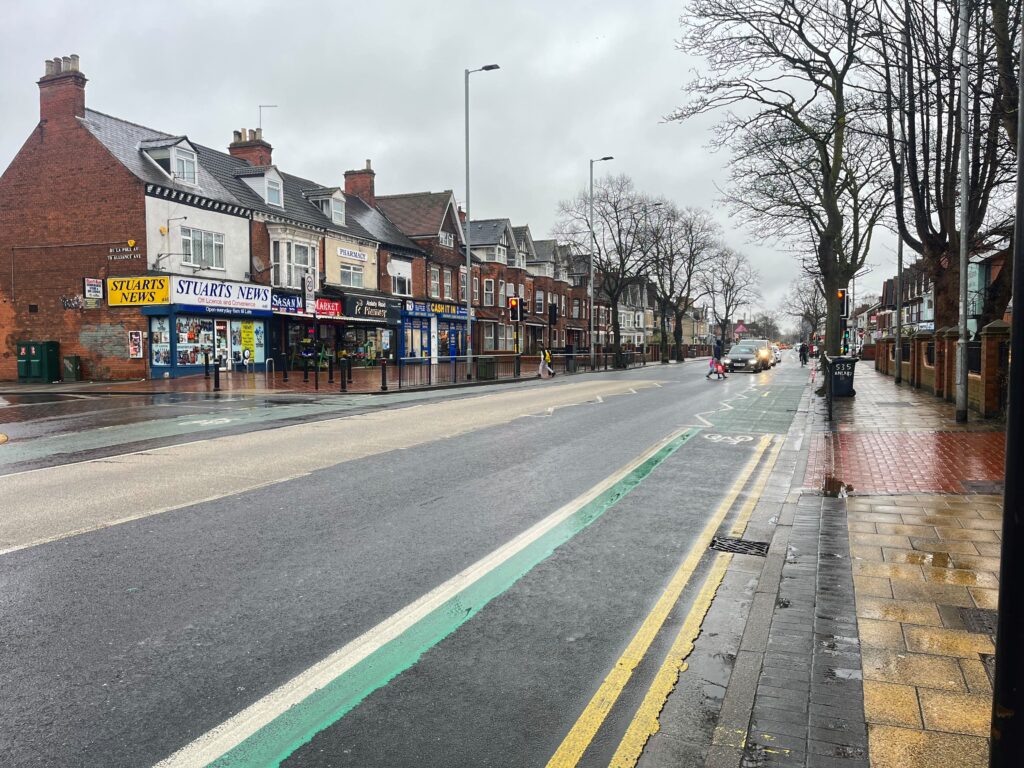Hull City Council has bolstered its efforts to reduce congestion and improve traffic management through the trial use of Artificial Intelligence (AI) technology.
Following an initial AI-powered traffic management trial in Hull – conducted in collaboration with leading AI company Simplifai – Hull City Council are proud to share encouraging date which shows a significant reduction in traffic congestion during peak hours.
The system, which uses AI to adjust traffic light timings to help alleviate congestion hot spots to improve traffic flow, safety, and sustainability within the city, was funded by the Department for Transport (DfT).
This system collected information from various data sources, over several months leading up to the live trial on Anlaby Road between Hull Royal Infirmary and De La Pole Avenue.
The pre-trial information was collected between Monday 27 November and Friday 1 December 2023, which estimated that AI traffic management could reduce the average journey times during peak hours by 19%.
Following this successful real-time data collection, the trial went live on Anlaby Road between Monday 19 February and Sunday 25 February 2024.

Results gathered showed that over the week – compared to the typical week in November – journey times reduced on average in the AM peak by approximately 16.9% and by approximately 8% in the PM peak.
When converted to hours in delay, this showed a reduction of nearly 65 hours of congestion in the AM and 23 hours in the PM.
Further, by using a base calculation of £12 per hour for economic value purposes, this totals a staggering £180k that has been added back into the local area, due to vehicles travelling through the corridor to their end destinations more efficiently.
Sean Higgins, Intelligent Transport System Manager at Hull City Council, said: “As we move forward, we envision a city where AI-driven traffic management becomes an integral part of our urban infrastructure.
“The lessons learned from this initial trial will inform our decisions as we plan for further implementation of the system across Hull.
“The success of this trial exemplifies our commitment to innovation and sustainable urban development. We look forward to expanding these solutions for the benefit of all residents.”
Councillor Mark Ieronimo, Portfolio Holder for Transportation, Roads, and Highways said: “By dynamically adjusting traffic signals on Anlaby Road based on real-time data, the Council have significantly reduced congestion and optimised the movement of vehicles, cyclists, and pedestrians in this area.
“The positive impact of using AI technologies to aid traffic management is evident, with these figures showing the effectiveness of implementing these technologies.
“The Council’s vision is to create a smart, connected city where mobility is efficient, safe, and environmentally responsible. By embracing AI technology, we aim to enhance the quality of life for residents, and visitors alike.”
To further support the development of traffic signals, and to install advanced and improved technology, Hull City Council have successfully bid for £500,000 worth of central government funding. This will further aid traffic flow, pedestrian movements and improve facilities for non-motorised users such as cyclists.
The funding has been awarded by the DfT through a partnership with the Transport Technology Forum and is the second time Hull City Council has been successful, which will total over £1m of investment since 2021 upon its completion by March 2026.
Cllr Ieronimo added: “This successful bid marks a significant milestone in the Council’s journey toward a smarter, more connected city. AI traffic management will enhance the quality of life for our residents.
“The integration of AI into traffic management is a game-changer, and Hull is at the forefront of innovation.”
